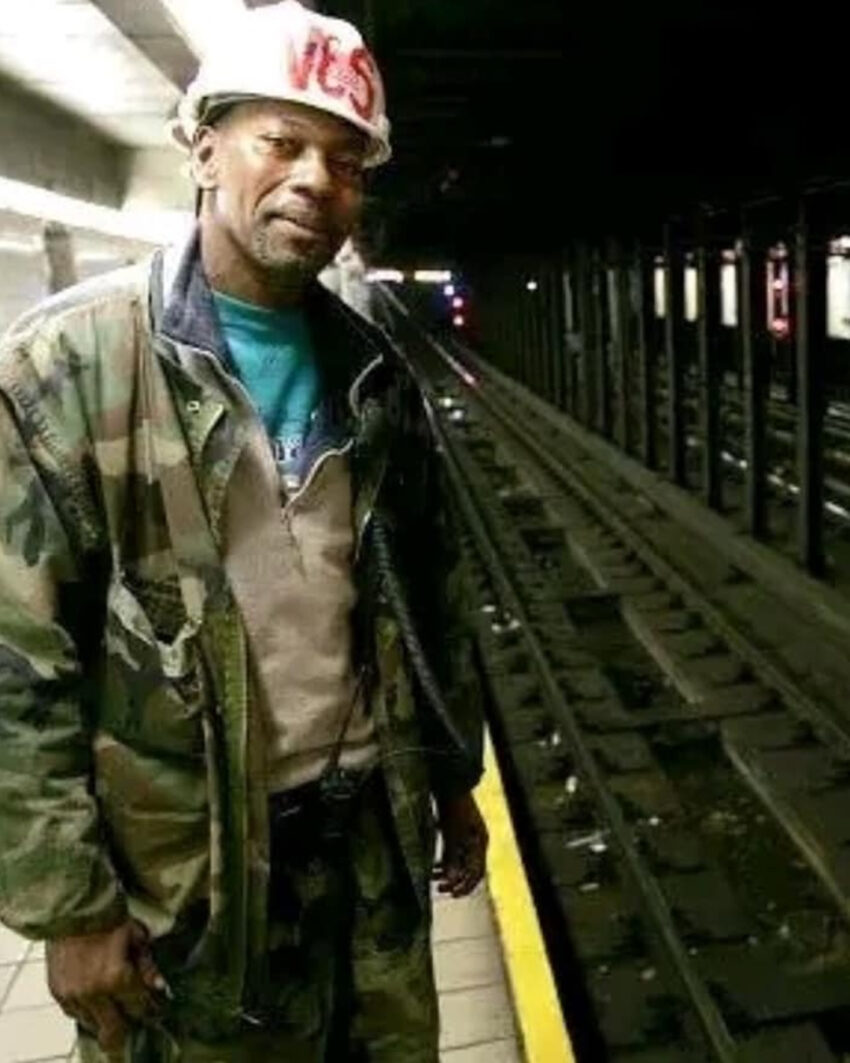
New York City has always been a place of stories—millions of people crisscrossing sidewalks and subways, each carrying their own worries and dreams. But on an ordinary day in 2007, inside a subway station packed with commuters, a single moment would etch itself into history.
It was the moment Wesley Autrey, a construction worker and father of two, made a decision so instinctive and so courageous that it would forever redefine what it means to be a hero.
The story began with a young film student named Cameron Hollopeter, who suddenly suffered a seizure and stumbled onto the subway tracks. One second he was standing among strangers; the next, he was lying helpless in the path of an oncoming train. Gasps echoed through the station. People froze. Time seemed to splinter into panic and paralysis.
But Wesley Autrey did not freeze. He was standing nearby with his two young daughters, holding their hands as they waited for their train. In that instant, he faced a choice most people never dream of confronting: stay back and keep his children safe, or leap forward into danger to try to save a life.
With barely a moment’s hesitation, Autrey acted. He jumped down onto the tracks as the headlights of the train bore down on them.
Realizing there wasn’t time to pull Cameron out, he made a split-second calculation: the shallow space between the rails might just be enough to save them both. He pushed Cameron flat into the trough and pressed himself tightly on top, shielding the unconscious man with his own body.
The train operator hit the emergency brakes, but momentum carried the cars forward. One, two, three… until five cars thundered over them. The screeching metal roared above their heads, sparks flying as steel ground against steel. The space was so tight that grease from the undercarriage brushed Autrey’s cap. For those seconds, the crowd held its breath, fearing the worst.
And then, silence. The train stopped. Against all odds, both men were alive. Slowly, Autrey’s voice rose from under the train: “We’re okay down here. But I’ve got two daughters up there. Let them know their father’s alright.”

In that moment, the ordinary man became extraordinary. He hadn’t thought of glory. He hadn’t thought of risk. He had simply seen another human being in danger and acted on instinct, placing his own life between another man and certain death.
News of the rescue spread like wildfire. Headlines across the country hailed him as the “Subway Hero.” But Autrey, humble and matter-of-fact, brushed off the praise. “I just saw someone who needed help,” he said. “I did what I felt was right.”
For Cameron Hollopeter, the student whose life was spared, Autrey’s decision was nothing short of a miracle. For the countless commuters who witnessed it, it was a reminder that true courage is not about grand speeches or medals, but about what one does in the split second when fear and humanity collide.
Autrey’s cap, smudged with grease, became more than just an object. It was proof of how close death had come—and how one man’s selflessness had pushed it away.
Even years later, the story continues to resonate because it reveals something we all long to believe: that in moments of crisis, when lives hang in the balance, ordinary people can rise to extraordinary heights.
Wesley Autrey was not wearing a uniform. He was not trained for such emergencies. He was simply a father, a worker, a man standing on a platform with his daughters. And in the blink of an eye, he became a shield between life and death.
It is easy in today’s world to feel cynical, to doubt the goodness of strangers. But the subway hero reminds us that bravery is real, that compassion is powerful, and that sometimes, when the stakes are highest, humanity shows its brightest face.
Because on that day in 2007, in the rumbling shadows of a New York subway, Wesley Autrey proved that a single act of courage can not only save a life—but inspire a world.
